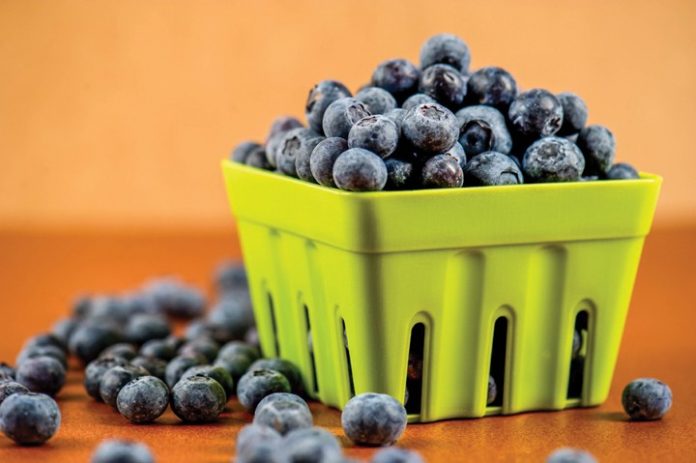By Beth Ceccarelli
Filling your cart with healthy items while shopping at the supermarket can be challenging, but luckily, ShopRite has a solution.
The grocery retailer recently released the results of a survey asking its team of in-store dietitians to choose their top 10 favorite foods for optimal health. While some of their picks might surprise you, others will confirm what you’ve probably known all along — healthy eating can be fun and delicious.
1. Almonds. Containing the lowest calories of any nut, almonds are only 160 calories per serving, and are an excellent source of magnesium, vitamin E, calcium and folate, and even contain protein and fiber. “There are many kinds of almonds on the market,” says Stephanie Perez, retail dietitian supervisor at ShopRite. “Almonds marked ‘dry’ or ‘dry-roasted’ are always a good choice.”
2. Chickpeas. Packing just two grams of fat, six grams of fiber and almost eight grams of protein per half cup, “garbanzo beans,” as chickpeas are often called, get a green light from dietitians for their satiating powers as well as countless health benefits. Bought most widely in the canned version, look for low-sodium chickpeas or be sure to rinse before eating to get rid of added sodium.
3. Blueberries. Sweet and satisfying, blueberries are loaded with disease-fighting compounds called anthocyanins. Some studies have shown that these tiny superfruits can help boost memory function, lower blood pressure and help guard against certain diseases. Try freezing them and eating them as a hot-weather snack.
4. Kale. This dark, leafy green vegetable has taken center stage lately for good reason. Kale is versatile, tasty and nutrient dense. Very low in calories, kale is full of important nutrients like vitamin C, vitamin A, folate, fiber, magnesium and calcium. Some studies suggest this green can help fight cancer, help vision and support a healthy immune system. The USDA recommends eating one and a half to two cups of leafy green vegetables per week, so adding kale to your weekly meal plan will do your body good.
5. Greek yogurt. Greek yogurt is a favorite among dietitians for its creamy texture, high protein content (twice the amount of regular yogurt) and gut-friendly probiotics. While Greek yogurt makes a super healthy snack or addition to a meal, it has been shown to be tolerable to those suffering from lactose intolerance due to its lower lactose content from the straining process. (And despite its name, “Greek yogurt” is thought to have originated in the Middle East).
6. Flaxseed. A great source of protein, fiber, heart-healthy fats, vitamins and minerals, flaxseeds are best absorbed and utilized by the body if bought pre-ground. With their slightly nutty flavor, flaxseeds add umph to a morning bowl of oatmeal and are great worked into the batter of pancakes.
7. Quinoa. This ancient whole grain — which is technically a seed — is loved by dietitians for its versatility and plethora of health benefits. Naturally high in protein and gluten free, quinoa is high in fiber, B vitamins, iron, potassium and antioxidants. Some studies say that eating quinoa as part of a healthy diet can help regulate blood sugar and provide anti-inflammatory effects.
8. Eggs. Always an “eggs-cellent” decision, eggs are great for both their versatility and their health benefits. Eggs contain nutrients like lutein, choline and vitamin B12, which are known to be essential for eye health, memory and metabolism. Whether you like your eggs whipped, mashed, scrambled, boiled or even poached, there’s always a new way to enjoy them by the dozen.
9. Salmon. Filled with heart-healthy omega-3’s, salmon is one of the healthiest seafood options available. A distant cousin of trout and char, whether you buy it fresh, frozen or canned, it’s a great choice — even the American Heart Association thinks so. The AHA recommends adults eat at least two servings of fatty fish like salmon per week, so go ahead and enjoy.
10. Avocado. America’s love affair with avocados has been growing steadily over the last decade. Creamy and delicious whether it’s being added to a salad, sandwich or used as a spread, the avocado is a regular on every superfoods “best of” list. But dietitians are particularly enamored with avocado for its many benefits — not only does it contain nearly 20 vitamins and minerals, it has fiber as well as heart-healthy monounsaturated fats, which help lower cholesterol and fight arterial inflammation. ••
“Top 10 Picks” will be featured in ShopRite stores through June 4. Stop in for recipe ideas, tastings and individual tips from a registered dietitian on how to incorporate these foods into your diet. Visit ShopRite.com for information.





